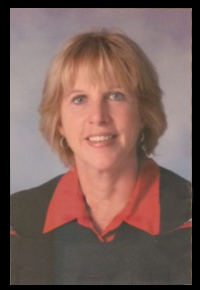 “My interest in improving health care stems from my desire to really make a difference for patients and for the people who live in our community,” says Sue Carpenter. Sue is a 2005 graduate of the UBC MSN program delivered in collaboration with Thompson Rivers University (TRU). Her capstone degree project was an examination of the impact of emergency room overcrowding on staff and patients and proposing solutions. “I studied what other countries were doing to address emergency department congestion,” says Sue. “Historically, emergency departments tend to be the ones left to deal with congestion. The more the system can be involved-acute care, home care, community, etc.-the more help there is to solve the problem. We need to be sure the system recognizes that emergency patients are everyone’s responsibility.”
“My interest in improving health care stems from my desire to really make a difference for patients and for the people who live in our community,” says Sue Carpenter. Sue is a 2005 graduate of the UBC MSN program delivered in collaboration with Thompson Rivers University (TRU). Her capstone degree project was an examination of the impact of emergency room overcrowding on staff and patients and proposing solutions. “I studied what other countries were doing to address emergency department congestion,” says Sue. “Historically, emergency departments tend to be the ones left to deal with congestion. The more the system can be involved-acute care, home care, community, etc.-the more help there is to solve the problem. We need to be sure the system recognizes that emergency patients are everyone’s responsibility.”
In her capacity as Corporate Director of Emergency Services for the Interior Health Authority, Sue works with 35 emergency departments across the region. “Because we have several small rural communities, access to service and sustainability of coordinated service are very important.” An idea that Sue uncovered as a result of her MSN project was the creation of multidisciplinary “access and flow” teams including senior leadership. Toward this end, Sue and colleagues sponsored a series of “Decongestion Forum” sessions. At each, invited physicians, nurses and other health care professionals were challenged with the question “What would you do in your own sector of health care in order to decrease the emergency congestion?” These initiatives stimulated working together to share the responsibility of congestion and to create proactive solutions. Although there is no “quick fix,” says Sue, “we are seeing incremental differences.” Her colleagues, however, see these initiatives as having province-wide impact. Recently, they acknowledged Sue’s work in this area with the Thompson Rivers University Distinguished Alumni Award for professional achievement.
Sue has also been active in further key initiatives to resolve health care system challenges. Faced with an unexpectedly high potential rate of attrition among nurses in the ICU, Sue organized in-house critical care training programs in partnership with the British Columbia Institute of Technology (BCIT) and the provincial government. Drawing on evidence from the literature, she also helped shape a new strategy for helping with staffing shortages. By “over hiring,” or assigning an extra nurse on each shift to provide vacation and sick relief, she demonstrated that it was possible to reduce last minute relief nurse requirements. “At the beginning it was difficult to convince everyone of the program’s value because of the risk in paying for an extra shift,” says Sue. “However, I knew it was right. Our casual nurses wanted full-time and this gave us the opportunity to build relief into the schedule.”
“Sue has led Interior Health Emergency Services in directions that many individuals within the system thought were not possible,” says Tom Fulton, Professional Practice Leader and Chief Nursing Officer, Interior Health Authority. “Our multiple and culturally varied emergency departments have been drawn together to work collaboratively on system-wide approaches to unending challenges. Sue has been able to facilitate these diverse groups and support them in identifying common issues and solutions.”
Sue recognizes the influence graduate education has had on her ability to advance patient and staff care within Interior Health. “The UBC/TRU cooperative was a great opportunity for me. I had just started my new full-time role as Corporate Director of Emergency Services, so this provided me with the opportunity to live at home and enroll in the program,” she says. “It was great to have a program coordinator who lived in Kamloops as well.”
Sharon Simpson, Assistant Professor at the TRU School of Nursing and on-site program coordinator for the Kamloops-based students, agrees that the joint initiative has been an excellent opportunity. “Many nurses in our community have told us they could not have obtained a graduate degree if this opportunity had not been made available,” Sharon says. “I know that other faculty members in our School have also been involved in the UBC program in ways that have expanded their learning.” For Sue, returning to complete her master’s degree at UBC has given her the confidence she required to take on a more senior position within her local Health Authority and to develop care delivery programs with the potential to really make a difference. “It is great to have an impact on clinical care from this position and to continue to improve the experience for both staff and patients.”